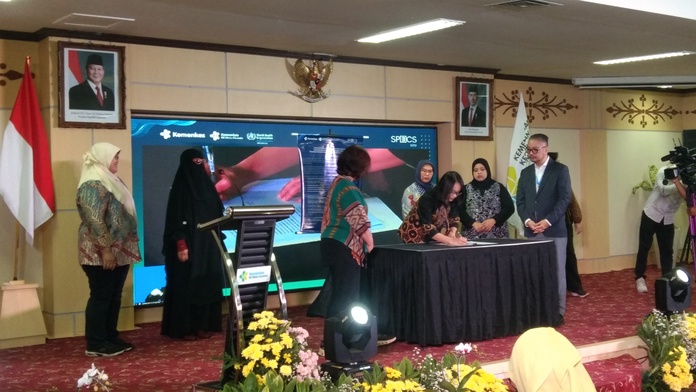The winger stated that his team is in a positive mood after achieving victory over Bangkok United FC.
However, Saddil Ramdani emphasized that the euphoria of victory should not make the team complacent.
“Thankfully everyone is happy and pleased, but that also becomes motivation for the next match. The competition is still long, so we must focus more on training and look ahead to the next game,” said the player.
After that match, the team has about ten days off before competing again.
The team mentioned they are using this break period to strengthen physical condition and maintain playing rhythm.
“Yes, we fully trust the coach’s program. Today we’ve already started physical training, because previously it wasn’t too heavy. So tomorrow will likely continue. The main point is we remain focused on the management’s established targets,” he said.
The team is scheduled to continue preparations for the upcoming 2025/2026 BRI Super League competition, focusing on maintaining their best performance after the positive ACL result.

Cicendo Eye Hospital Bandung hosted the World Sight Day 2025 commemoration held in Building C Hall, 4th Floor. The 2025 commemoration carries the main theme of Joint Commitment Declaration to Improve Access to Vision Health Services and Affordable, Equitable Assistive Products, Indonesia SPECS 2030.
The hospital director stated that vision impairment and blindness remain major challenges in Indonesia. Based on Rapid Assessment of Avoidable Blindness (RAAB) 2014-2016 data, Indonesia’s blindness rate remains at 3 percent, the highest in Southeast Asia.
“One of the main causes is uncorrected refractive errors. This condition can affect all ages and has significant impact on productivity, especially in children as it can disrupt their learning process,” explained the director.
The director explained that the government has prepared the Vision Health Effort Roadmap 2025-2030 as a national strategy. This step serves as the basis for expanding refraction services and equalizing access to vision aids such as glasses, with support from cross-sector collaboration.
“There is still a gap between the number of people with vision impairment and the availability of assistive devices. Through Indonesia SPECS 2030, the government aims to reduce that gap through collaboration across various sectors,” added the director.
Meanwhile, the Head of Dental and Sensory Health Working Team highlighted the threat to eye health in the digital era. This year’s global theme, Love Your Eyes, serves as an important reminder for the public to be more concerned about excessive device usage habits.
“RAAB 2016 data shows 15.9 to 44 percent of school children in Indonesia experience refractive disorders. High usage of digital devices risks worsening this condition,” said the official.
Since February 2025, the Ministry of Health has intensified free eye examinations for the public, particularly for school children. This step is part of national efforts to suppress vision impairment from an early age.
The peak of World Sight Day activities was marked by the signing of the Joint Commitment Declaration Indonesia SPECS 2030, involving the Ministry of Health, WHO, and various key stakeholders.
The Director of Non-Communicable Disease Control conveyed that this declaration marks an important milestone for national efforts to strengthen vision services in Indonesia.
“Two out of three people worldwide who need glasses haven’t received them. In Indonesia itself, approximately 15 million residents aged 50 and above experience vision impairment due to cataracts and refractive errors, while 44 percent of school children face similar problems,” explained the director.
The government targets increasing refraction service coverage to 40 percent by 2030. This initiative is part of the global WHO SPECS 2030 cooperation, which emphasizes quality and affordable vision services for all levels of society.
The WHO Representative for Indonesia praised the government’s steps which are considered aligned with the Health Law. The official assessed that the Community Eye Health or Integrated Community-Based Eye Care approach is an effective step to expand access to eye health services.
“Through this approach, Indonesia is committed to strengthening early screening, expanding public literacy, and improving access to affordable vision aids. WHO is ready to fully support Indonesia in achieving universal eye health coverage by 2030,”






